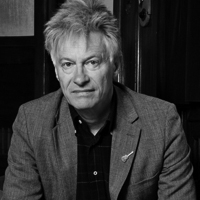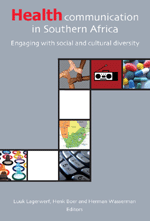Antonio Carmona Báez ~ After Hurricane Maria We Need To Reconstitute
This summer, the Netherlands and the world came to know Puerto Rico through the all-time most popular music video Despacito, which received over 3 billion hits on Youtube. But Puerto Rico has never been mentioned in Dutch news as much as it had throughout the last three weeks. First with Hurricane Irma which -besides depopulating smaller islands, nearly destroyed the Dutch and French territory of neighbouring St. Maarten, bringing 600 refugees to Puerto Rican hospitals and shelters. Another thousand refugees arrived from the Virgin Islands. However, this was only a precursor to a deadlier category 4/5 storm system ravaging the smallest island of the Greater Antilles.
Hurricane María pounded the US territory of Puerto Rico, leaving over 3 million people without electricity and clean running water. The hurricanes came and left, but the height of misery is yet to be experienced. Electricity workers claim that 80 percent of the island’s electric cables are insalvable, and hospitals are now totally dependent on diesel generators. While thirteen people have been declared dead to date, the death toll is surely to rise, as 70% of the island is incommunicado.
In a sense, the tropical weather systems have brought us, Puerto Ricans in the Caribbean and in the diaspora, closer to realise what we have in common with other islands: our delicate modernity and dependent vulnerability. Through Irma, we have become more aware of our neighbouring St. Maarten. The similarities of our territorial status in relation to the metropolises have also become more apparent. St. Maarten’s territorial status within the Kingdom is very similar to Puerto Rico’s relationship with the United States; both territories, just like Curaçao, have a Fiscal Control Board (College Financiële Toezicht) running local public expenditures from The Hague and from New York. In Puerto Rico and St. Maarten, it is now the military at the airports, running rescue and reconstruction. But the most striking similarities are those found in how our people back home are presented in the media: helpless, thirsty and prone to “looting”, ever moreso dependent on the greatness of those governments under which he have been subordinate for a long time.
Go to: http://curacaochronicle.com/after-hurricane-maria-we-need-to-reconstitute/
Greece and Economic Recovery: Fake News in Action
 Ten years ago, the implosion of Lehman Brothers ignited a financial crisis whose impact and effects were felt virtually across the globe as banks and financial institutions everywhere that were exposed to subprime lending, formed part of a long chain of complicated and interconnected derivatives, and partook freely in Wall Street shenanigans.
Ten years ago, the implosion of Lehman Brothers ignited a financial crisis whose impact and effects were felt virtually across the globe as banks and financial institutions everywhere that were exposed to subprime lending, formed part of a long chain of complicated and interconnected derivatives, and partook freely in Wall Street shenanigans.
In Europe, the global financial crisis that started in the United States did not reach shore until late 2009, and the first victim was the land that gave birth to democracy and laid the foundations for the emergence of Western civilization.
Enter Greece and an ongoing debt drama, with catastrophically spectacular economic, social, and political ramifications, that has no end in sight.
Indeed, now into its eighth year, Greece remains entirely dependent on international bailouts (three bailouts involving the European Union and the International Monetary Fund have been arranged since 2010), has lost a quarter of its GDP with no realistic expectations of recovering it for decades to come, experiences unemploymentlevels which have oscillated between a high 27.8 percent (in July 2013) and a low 21.2 percent (in June 2017), and has seen the standard of living decline to 1960s levels.
Worse, Greece’s debt-to-GDP ratio has exploded since the start of the bailout programs, rising from 128 percent in 2010 to over 185 percent in 2017, and, with no debt relief in sight, the small Mediterranean nation has become truly a permanent debt colony inside the world’s richest region. In the meantime, a mass exodus of young and educated people has been in motion for several years now (youth unemployment rate in Greece stands currently at 43.3 percent), a process that is bound to have long-term effects on demographic trends and a significant impact on future economic developments.
Nonetheless, the story line advanced these days from Athens, courtesy of a pseudo-leftist government that has not only reneged on every one of its promises to the Greek citizens since coming to power, but has ended up reinforcing the neoliberal agenda of the European Union/International Monetary Fund duo with more perseverance than all previous governments put together, is that the country has “turned page” and that the crisis is now practically over. Read more
Truth Or Dare? A Plea For Moderation
Philosophers who play the game ‘truth or dare’ are bound to recall the celebrated motto sapere aude (dare to know, dare to seek the truth) which Immanuel Kant used to capture the essence of the Enlightenment. In his famous essay from 1784, he called upon mankind to release itself from its self-inflicted immaturity in thoughtlessly accepting the authority of tradition and the tutelage of others, by wielding the force of critical reason. Self-emancipation through free public reasoning, however, required an act of personal courage, of daring to speak ‘truth to tradition’ and ‘truth to power’: of using knowledge, evidence, science and facts in challenging the powers that be.
But in our so-called post-truth society, Kant’s motto has been dramatically turned inside out, stood on its head, become perverse and cynical. The courage to speak out, to speak the truth, to break taboos, has become a major hallmark of a dominant anti-intellectual and populist Zeitgeist. Rightwing leaders such as Jörg Haider, Filip de Winter, Pim Fortuyn and Marine le Pen have all brandished the slogan: ‘We say what you think (but do not dare say)’. Mut zur Wahrheit is a poster tekst widely used by the Alternative für Deutschland. Donald Trump’s followers particularly like him because he dares to ‘speak his mind’.
According to this upside down version of the ‘courage of reason’, true speaking is transformed into a simple act of daring: of speaking without moderation, without thinking twice, as a raw expression of resentment, anger and frustration, and indulging in extremism, provocation, brutality and abuse. The courage of reason turnes into the courage of the bully.
Alt-right writer Milo Yiannopoulos explains: ‘Extreme ideas are permitted and even desirable. Anything goes. Rebellion, raising hell and incivility once again become acceptable in public life’. It is the by-now- familiar style of Breitbart, Fox News and Donald Trump, as pioneered in the Netherlands by GeenStijl, PowNews en De Dagelijkse Standaard. All of them seem to have adopted rule #1 of populist propaganda as formulated in Adolf Hitler’s Mein Kampf: ‘Be radical, proclaim your vision as the absolute truth’. A watered-down version of this was presented by Geert Wilders a few years ago in Milan: ‘Truth is not located somewhere in the middle. It is on our side, so you better get used to it’. Thierry Baudet, who describes himself as ‘one of the most brillant thinkers in the Netherlands’ adopts an equally peremptory tone: ‘My opinions are simply facts: I am right and the others are wrong’. Read more
Speech Truth or Dare, September 17th 2017
In preparation for this session I looked at the idea of critical citizenship. Specifically at the question of what are the preconditions for critical citizenship?
I would say there are at least three:
1. procedural: everyone playing by the same rules, and accepting the legitimacy of those rules. I’m thinking here of our constitution, and of the international charters in which our fundamental rights or liberties have been enshrined;
2. moral: everyone accepting the legitimacy of the other as an actor in that debate. Acceptance that life, liberty and the pursuit of happiness is the right of every individual. That we believe that all men and women are created equal, that we accept and respect the fundamental dignity of each individual;
3. epistemological: everyone accepts that debates may be guided by emotions and/or ideologies, but that they should be grounded in facts. Or at least
checked against them.
Is there a crisis in critical citizenship? It’s certainly being challenged on all three grounds.
To give one example: American conservative radio talkshow host Charlie Sykes recently did an interview with NPR. He told about how facts seemed to
have lost their meaning for some of his listeners. When lushing back against some crackpot conspiracy theory with facts, he was told these facts counted
for nothing because sources (NY Times, CNN etc) “had lost legitimacy”.
This is a problem: facts matter. If facts lose their meaning, there’s no basic standard to which we can appeal to assess political claims. Then any kind of
theory can be used to explain reality, even conspiracy theories — which as far as I’m concerned is the lowest form of sociology.
So facts matter. As does morality. It really is a problem if a politician treats whole groups of citizens as a suspect class, and tries to strip them of their
fundamental rights (wanting to outlaw an entire religion). Or if a politician suggests all society’s ills are caused by “the elite”, suggesting those who govern the country are engaged in a deliberate secret campaign to ruin the country. Read more
To Make Our Democracy Functional, We Must Confront Economic Inequality

Larry Bartels
The United States is a plutocratic disaster. Extreme levels of inequality and a political system in which elected officials cater primarily, if not exclusively, to the needs and interests of the rich have produced a social order beset with mounting problems and critical challenges that elections alone cannot realistically be expected to address. In this exclusive interview for Truthout, renowned political scientist Larry Bartels, author of the already classic work Unequal Democracy, provides a sweeping look at the state of our dysfunctional society.
C.J Polychroniou: In your book Unequal Democracy, you presented mountains of data revealing the seriousness of the problem of inequality in the United States. In your view, what have been the underlying factors for the emergence of a New Gilded Era, and why has the American political system failed to rise to the challenge of addressing the deep problem of inequality?
Larry Bartels: Most affluent democracies have experienced substantial increases in economic inequality over the past 30 or 40 years. In significant part, those increases are attributable to technological change, globalization and increased mobility of capital. … But different countries have responded to those changes in different ways. Most have mitigated their effects through increased redistribution, making post-tax-and-transfer incomes much less unequal. In the United States, there has been comparatively little redistribution. There have also been political shifts that have exacerbated pre-tax-and-transfer inequality, including deregulation of the financial industry, rules restricting the clout of labor unions and the erosion of the minimum wage.
Broadly, the difference is attributable to the economic ideology of America’s political leaders. More specifically, it is attributable to the economic ideology of Republican leaders. My historical analysis of partisan differences in income growth demonstrates that virtually all of the net increase in income inequality since the end of World War II has occurred under Republican presidents; income growth under Democratic presidents has tended to be faster and much more egalitarian.
What is the actual impact or effect of economic inequality on democracy?
We like to think that we can wall off our democratic political system from our capitalist economic system, leaving everyone free to get rich (or poor) but remain politically equal. In practice, however, that turns out to be impossible. Hence, “unequal democracy.”
My analysis of the voting behavior of US senators found that they are moderately responsive to the views of affluent constituents but completely ignore the views of low-income constituents. A study by Martin Gilens of policy outcomes likewise found that the probability that any given policy change will actually be adopted is pretty strongly related to the preferences of affluent people but virtually unaffected by the preferences of middle-class people, much less poor people.
Proposed explanations for these remarkable disparities in responsiveness often focus on distinctive features of the US — our permissive system of campaign finance, low rate of unionization, ethos of individualism and so on. But recent work along similar lines in other affluent democracies suggests that they, too, are marked by severe disparities in political influence rooted in economic inequality. Regardless of their specific political institutions, contexts and cultures, democratic systems seem to be chronically vulnerable to the conversion of economic power into political power. Read more
Health Communication In Southern Africa: Engaging With Social And Cultural Diversity
Part I: Individual And Social Network Factors
– 1. Condom Use In Tanzania And Zambia: A Study On The Predictive Power Of The Theory Of Planned Behaviour On Condom Use – Merel Groenenboom, Julia van Weert, & Bas van der Putte
– 2. Using Social Network Information To Design Effective Health Campaigns To Address HIV In Namibia – Rachel A. Smith
– 3. Social Capital And Communication On HIV Prevention With Young Adolescents In Kayamandi Township, South Africa – Henk Boer & Tessa A. Custers
Part II: Social Representations and Entertainment Education
– 4. The Portrayao Of HIV/AIDS In Lesotho Print Media: Fragmented Narratives And Untold Stories – Cecilia Strand
– 5. Social Representations Of HIV/AIDS In South Africa and Zambia: Lessons For Health Communication – John-Eudes Lengwe Kunda & Keyan G. Tomaselli
– 6. Edutainment Television Programmes: Tackling HIV/AIDS On The South African Broadcasting Corporation – Viola C. Milton
– 7. Edutainment Radio Programmes: The Importance Of Culturally Relevant Stories – Mia Malan
Part III: Patient Information
– 8. Using Pictograms In A Patient Information Leaflet To Communicate Antiretroviral Medicines Information To HIV/AIDS Patients In South Africa – Ros Dowse.
– 9. Understanding Motion In Static Pictures: How Do Low- Educated South Africans Evaluate Arrows In Health-Related Pictures? – Hanneke Hoogwegt, Alfons A. Maes & Carel H. van Wijk.
– 10. ‘Come, Let Me Show You’: The Use Of Props To Facilitate Communication Of Antiretroviral Dosage Instructions In Multilingual Pharmacy Interactions – Jennifer Watermeyer & Claire Penn.
– 11. Understanding South African Patient Information Leaflets: Readability And Cultural Competence – Daleen Krige & Johann C. De Wet.
Part IV: Supporting People: Practical Approaches To HIV/AIDS Communication
Individual and Social Network Factors
– 12. An Aids Awareness Programme In A Rural Area Of South Africa To Promote Participation In Voluntary Counselling And Testing – Hugo Tempelman & Adri Vermeer.
Patient Information
– 13. The Employment Of HIV Positive Young People For Health Promotion In Higher Education: A Case Studiy Of The Dramaide Health Promoters Project, South Africa – Emma Durden.
– 14. Cell Phones For Health In South Africa – Tanja E. Bosch. Read more





